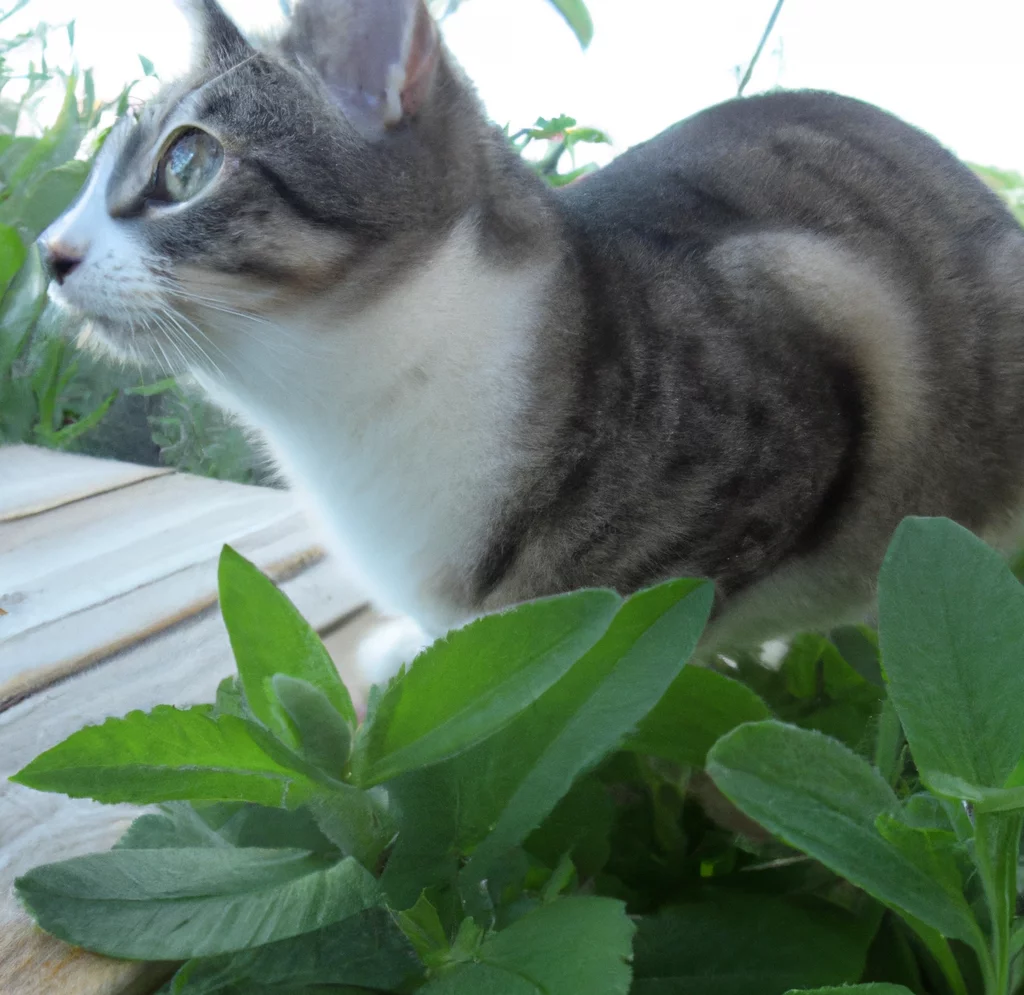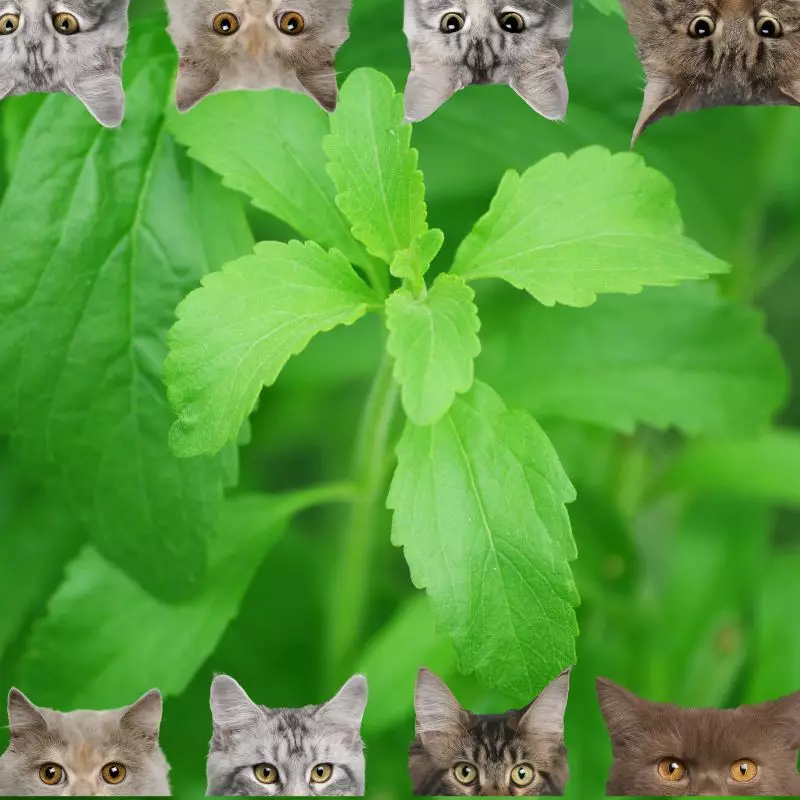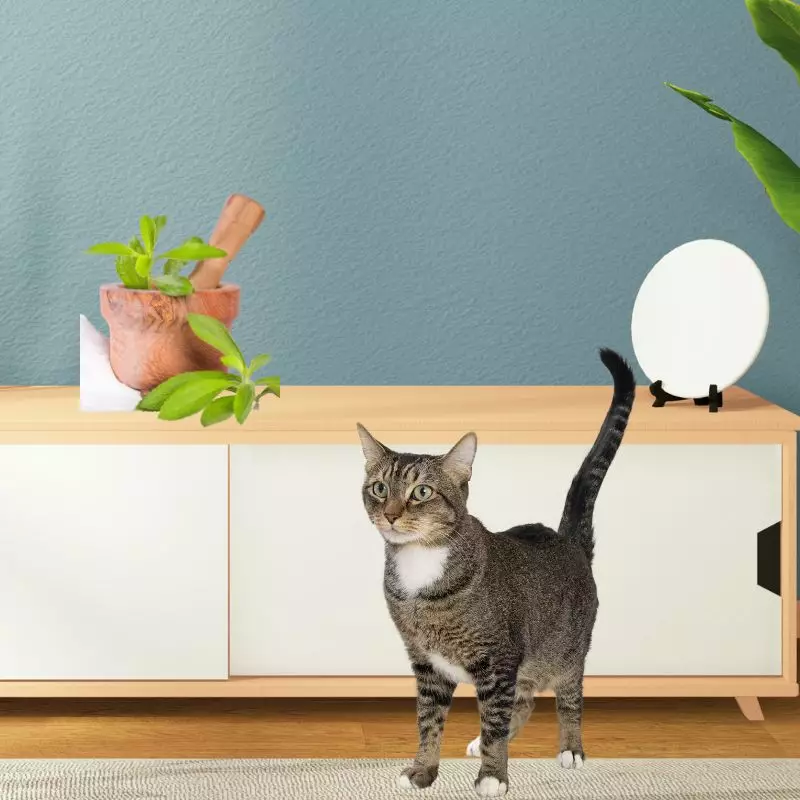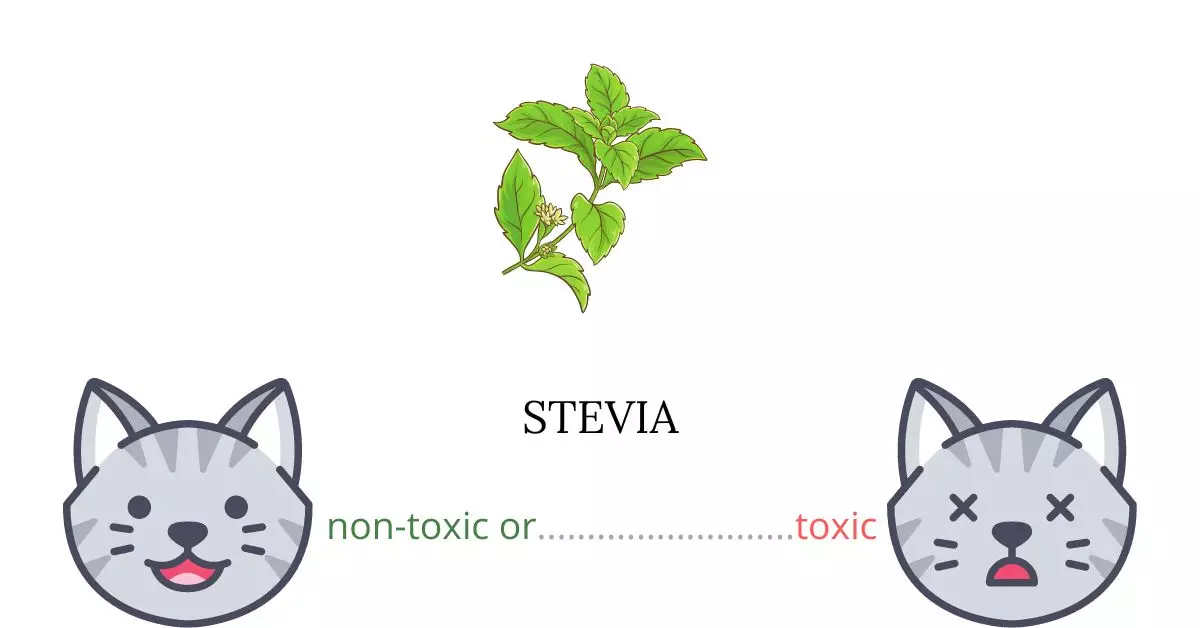No, Stevia or sugar leaf is not toxic for cats. The American Society for the Prevention of Cruelty to Animals (ASPCA) has listed Stevia as one of the non-toxic plants for our feline friends. It contains no harmful compounds and is entirely safe for cats to lick, touch, or nibble on.
This article was penned in collaboration with a team of experienced DVMs (doctors of veterinary medicine). With their invaluable insights and our extensive research from high-authority websites like the ASPCA and PetMD, we aim to provide you with accurate and current information regarding the potential risks plants may pose to cats, with a focus on Stevia in this instance.
Can Cats Eat Stevia or Sugar Leaf?

Cats that consume a reasonable quantity of stevia do not experience any negative effects. This sweetener is safe for cats with diabetes to consume because it doesn’t affect glucose responses and has a very low carbohydrate content.
However, some stevia brands or mixtures may also include alcoholic sugars. High alcohol sugar intake can cause gastrointestinal problems like upset stomach and other digestive problems. To stop your cat from consuming alcoholic sugars, read the labels carefully if you plan to use commercial stevia products.
In a cat’s diet, carbohydrates are not particularly important. Protein, healthy fats, and particular vitamins and minerals make up the bulk of a cat’s diet that is considered to be healthy.
Pick cat food with between 30% and 40% protein if you want to feed your cat healthy food. Any food that contains less than 26% protein is bad for the health of your cat.
Cats cannot consume a plant-based diet because they require specific amino acids found in animal protein.
What is Stevia or Sugar Leaf?

The plant species Stevia rebaudiana belongs to the genus Stevia in the family Asteraceae. Various names for it include candy leaf, sweetleaf, and sugar leaf.
It is a diminutive seasonal plant that reaches a height of 30 to 60 cm. It has elongated leaves that are stacked one on top of the other along the stems. Usually, the flowers are removed to enhance the flavor of the leaves. Stevia is a delicate perennial that is native to humid, wet areas of Paraguay and parts of Brazil.
Stevia is widely cultivated for its leaves, from which extracts can be produced as sweetener products that are marketed under various trade names but are generically known as stevia. Early in the twenty-first century, stevia sweeteners gained popularity all over the world as a healthier substitute for sugar.
Keeping Cats Away From Stevia or Sugar Leaf

Cats might not be that attracted to Stevia because their tongues lack taste receptors that can recognize sweetness, so they are unable to taste it. However, it is still best to pick up some tips on keeping away your feline friends from your stevia plant and other houseplants.
Keeping your property tidy and clean, including the yard and garden can reduce cat visits including stray and wandering animals. The aroma of food also draws in other animals, including cats. After using your outdoor grill, give it a thorough cleaning to get rid of food residue and reduce odors. Additionally, check to see that your trash cans are tightly closed so that cats cannot dig through your garbage.
Making your garden surface rough will also drive away cats. Use push pine cones or other prickly yard trimmings like fallen leaves. Layer these objects on your garden soil around your plants and watch as your cats avoid the area.
Plants to Avoid For Your Cats
If you are a cat owner and unsure if the plants growing in your yard are harmful to your cats, check out this list of toxic plants for cats. You can also check our list of non-toxic plants for cats.





